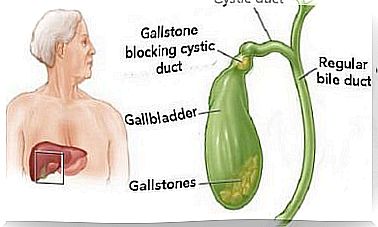The Dangers Of Canned Food

A large part of the food that can be found in the supermarket is canned food. It almost seems like it’s completely normal and healthy. Unfortunately , several studies show that the material the cans are made of forms a toxic component that is harmful to health. Learn more about the dangers of eating canned food in this article.
Cans have a special coating made with bisphenol A resin. It is not so important to remember the name of this drug, but it is important to know that it accumulates in the body and its effects are certainly not good. A study by Harvard University found that people who ate canned soups five days in a row had a large amount of bisphenol A (BPA) in their urine. Then they measured the level of this drug for five more days without the subjects ingesting canned soup. After the five days, no BPA was found in the urine.
Is bisphenol A (BPA) dangerous?
BPA is studied by many researchers. A publication from the Medical Association Journal indicates that this substance is used in the manufacture of plastics, resins and cans. A report conducted in the United States showed high levels of BPA in babies, children and fetuses.

Canada was the first country in the world to declare BPA to be a toxic substance. The EU followed suit and banned the use of this substance in the manufacture of feeding bottles. But BPA resin is still used in other products, as in this case to cover metal cans that contain food and beverages.
There is still not enough evidence to know how the accumulation of bisphenol A in the body affects our health. However, animal experiments have shown alarming results. For example, we know that BPA is a hormone-disrupting substance that can alter the function of the hormonal system. It has also been linked to diabetes, cardiovascular disease and obesity.
The problem is not so much in the contents of the cans (although you should also be aware of this). But in food contact with BPA. Due to certain experiments which have shown the bad properties of BPA. If researchers do everything they can to remove BPA from canned food or so food in cans that contain BPA is banned.
Risks of canned food
BPA is found, in addition to cans, also in plastic and vacuum-packed food. The only type of packaging or container that can look free of this substance is glass and paper (have you thought about how the taste of food can change, depending on what it is packed in?).
Synthetic chemical products used to package, store and process food are silent enemies. No one is fully aware of what they are actually consuming and how it can affect one’s own and one’s family’s health. The majority of these substances do nothing, which is why they can be used with food without any problems.
People who eat a lot of canned food are at greater risk of being exposed to these substances, which can cause obesity, hormonal changes, heart problems and diabetes.

The truth is that not much is known about these substances and about how they affect the body and its functions. However, it has been confirmed that cans contain “popular” toxic substances. Such as formaldehyde, which is commonly known among researchers as a carcinogen. This substance is also available in plastic bottles, however in smaller quantities.
The danger of canned tuna
There is no doubt that canned tuna is one of the most popular foods because one does not have to cook it and can add it to pretty much any dish. The good properties of this fish (which contains omega-3 fatty acids and phosphorus), are put to checkmate by the content of mercury contained in the cans.
Mercury is a metal with toxic effects that damages the nervous system. In addition to being present in cans, it is also found in the water in some of the areas where one fishes for certain species of fish, including tuna. Among other things, mercury can increase the risk of having heart attacks, neurosensory changes. And may interfere with the neurological development of fetuses.

The risk of aluminum-lined cans
The majority of cans used to store food and sold in supermarkets have a plastic packaging, also known as epoxy resin, which is applied on the outside. This procedure is created to prevent food from reacting with the can and to prevent its acids from eroding the material. The idea is to make cans last for a long time, which is why they have a circular shape, and get this clothing on.
Canned poisoning as an “old” problem

Everyone should know the story of John Franklin’s fateful expedition to the Arctic. Where a large part of the ship’s crew died from eating canned food. This was found out many years later on the basis of various studies. The cause was lead poisoning, as lead was just used to seal cans to preserve them. Although this story may be a myth and the procedures for storing food have changed, it is good to know that the problem of canned food is not new.









